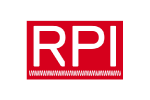News
June 21, 2019And its Over!
The 2019 Legislative Session is finally over, and as always, your Chamber Advocacy team was fully engaged in the fight for policies that serve the best interests of our members and our region. Now we can report the good, the bad and the ugly.
THE GOOD:
- Single Payer Health Care was not acted upon. The Chamber has long supported affordable and comprehensive access to health insurance and a robust health care system without imposing new mandates and taxes. A government run, single payer health care system will not accomplish these goals. Consequently, the Chamber strongly opposes this legislation.
- Prevailing wage was not acted upon. The Chamber strongly opposed this legislation, which would have slammed the brakes on economic development in Upstate New York.
- The Legalization of Recreational Marijuana was not acted upon. Although the Chamber did not take a position on this proposal, we strongly oppose the inclusion of public policy issues, such as a proposal to legalize recreational marijuana, as part of end of session negotiations or as part of a “big ugly” bill. Substantive policy issues should be submitted as stand-alone bills, thoughtfully reviewed, debated and subject to public hearings and public comment over an extensive period. Consideration of such policy issues should not occur during the final days of the legislative session as it does not allow for the proper engagement of the public and all stakeholders. The Chamber is grateful that the Legislature respected our perspective and did not take action on this legislation.
- Masters-in-Education Teacher Incentive Scholarship Program has been amended through legislation passed to align the program with other state scholarship programs that allow students to choose the college or university with the academic program and approach that benefits them most. The Chamber supported the passage of this legislation, which was sponsored by Senator Neil Breslin and Assemblymember Pat Fahy.
THE BAD:
- The State Office of the Utility Consumer Advocate was created through new legislation. The Chamber opposed this legislation. There are currently sufficient consumer advocates with expertise in utility services and New York State consumers are capably served by these existing advocates. The creation of a new state office of the Utility Consumer Advocate is unnecessary and will be a waste of resources. In short, taxpayers will be paying for something for which they already have access.
THE UGLY:
- Universal Rent Control was signed into law. Its intent is to protect tenants and promote affordable housing. Unfortunately, this new law will fail to achieve either of these goals. Most tenant complaints could and should be more appropriately addressed through code enforcement. Regrettably, the necessary government funding has not been provided to allow for proper code enforcement at the local level. When it comes to affordable housing, the state is already investing $20 billion under a five-year Housing Plan that will create 100,000 affordable homes statewide. Additionally, millions of public and private dollars are being invested throughout the Capital Region on affordable housing. The Chamber was one of the few organizations to lead the fight against this well-intentioned but poorly conceived legislation. Unfortunately, emotion won out over facts and poor public policy was enacted at the expense of tenants, landlords and the Upstate economy.
- Climate Leadership and Community Protection Act was passed and New York has enacted the most aggressive and costly climate change legislation in the nation. To be clear, the Chamber supports efforts to reduce the carbon intensity of our economy without reducing economic growth. However, we had significant concerns with this legislation, its impact on our economy and its estimated $7B annual price tag. We therefore opposed the bill. Unfortunately, again emotion won out over facts and poor public policy was enacted at the expense of our economy. Going forward, it is the Chamber’s hope that policy makers will include the employer community at the table as they hammer out the details of this new act.



























